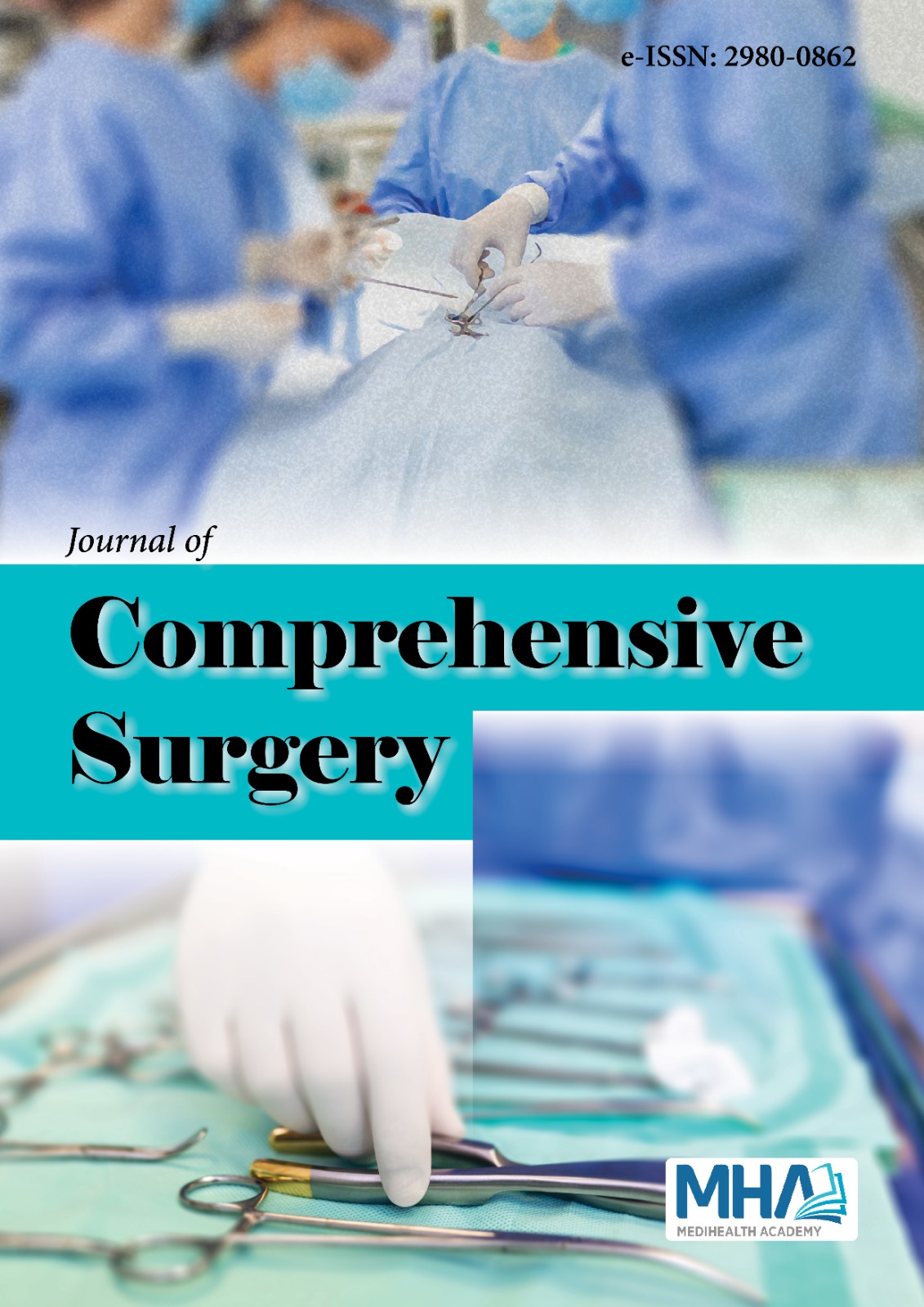1. World Health Organization. Absolute numbers, incidence and Mortality, Both sexes, in 2022. Available from: https://gco.iarc.fr/today/en/dataviz/bars?mode=cancer&group_populations=1&key=total&types=0_1&sort_by=value1
2. Zhang CY, Liu S, Yang M. Clinical diagnosis and management of pancreatic cancer: markers, molecular mechanisms, and treatment options. World J Gastroenterol. 2022;28(48):6827-6845.
3. Çaparlar MA, Durhan A, Süleymanov M, Binarbaşı C, Koşmaz K. Prognostic effect of preoperative inflammatory markers on morbidity and overall survival in pancreatic adenocarsinoma. Niger J Clin Pract. 2023;26(12):1902-1909.
4. Lippi G, Mattiuzzi C. The global burden of pancreatic cancer. Arch Med Sci. 2020;16(4):820-824.
5. Li Y, Liu Z, Zhang Y. Expression and prognostic impact of FZDs in pancreatic adenocarcinoma. BMC Gastroenterol. 2021;21(1):79.
6. Zhang Z, Sun W, Zeng Z, Lu Y. Identification of significant prognostic risk markers for pancreatic ductal adenocarcinoma: a bioinformatic analysis. Acta Biochim Pol. 2022;69(2):327-333.
7. Basoglu T, Babacan NA, Ozturk FE, et al. Prognostic value of Gustave Roussy immune score in operable pancreatic adenocarcinoma. Indian J Cancer. 2023;60(2):179-184.
8. Agalianos C, Gouvas N, Manatakis DK, Sideris I, Passas I, Dervenis C. The role of inflammatory markers in predicting resectability of pancreatic ductal adenocarcinoma. Chirurgia (Bucur). 2022;117(4):431-436.
9. Pekarek L, Fraile-Martinez O, Garcia-Montero C, et al. Clinical applications of classical and novel biological markers of pancreatic cancer. Cancers (Basel). 2022;14(8):1866.
10. Liu L, Zhang BB, Li YZ, et al. Preoperative glucose-to-lymphocyte ratio predicts survival in cancer. Front Endocrinol (Lausanne). 2024;15: 1284152.
11. Yılmaz A, Şimşek M, Hannarici Z, Büyükbayram ME, Bilici M, Tekin SB. The importance of the glucose-to-lymphocyte ratio in patients with hepatocellular carcinoma treated with sorafenib. Future Oncol. 2021; 17(33):4545-4559.
12. Yang M, Zhang Q, Ge Y, et al. Glucose to lymphocyte ratio predicts prognoses in patients with colorectal cancer. Asia Pac J Clin Oncol. 2023;19(4):542-548.
13. Hannarici Z, Yılmaz A, Buyukbayram ME, et al. The value of pretreatment glucose-to-lymphocyte ratio for predicting survival of metastatic gastric cancer. Future Oncol. 2023;19(4):315-325.
14. Shadhu K, Xi C. Inflammation and pancreatic cancer: an updated review. Saudi J Gastroenterol. 2019;25(1):3-13.
15. Raghavan SR, Ballehaninna UK, Chamberlain RS. The impact of perioperative blood glucose levels on pancreatic cancer prognosis and surgical outcomes: an evidence-based review. Pancreas. 2013;42(8): 1210-1217.
16. Luo J, Chen YJ, Chang LJ. Fasting blood glucose level and prognosis in non-small cell lung cancer (NSCLC) patients. Lung Cancer. 2012;76(2): 242-247.
17. Huxley R, Ansary-Moghaddam A, Berrington de González A, Barzi F, Woodward M. Type-II diabetes and pancreatic cancer: a meta-analysis of 36 studies. Br J Cancer. 2005;92(11):2076-2083.
18. Bigot F, Castanon E, Baldini C, et al. Prospective validation of a prognostic score for patients in immunotherapy phase I trials: the Gustave Roussy Immune Score (GRIm-Score). Eur J Cancer. 2017;84: 212-218.
19. Onder AH, İlhan Y, Balçık OY, Karakaya G. Gustave Roussy immün skor operabl kolorektal kanserli hastalarda prognozu ve sağkalımı öngörebilir mi? Turkish J Clin Lab. 2023;14(3):496-507.
20. Petrelli F, Barni S, Coinu A, et al. The modified Glasgow Prognostic Score and survival in colorectal cancer: a pooled analysis of the literature. Rev Recent Clin Trials. 2015;10(2):135-141.
21. Imaoka H, Mizuno N, Hara K, et al. Evaluation of modified Glasgow Prognostic Score for pancreatic cancer: a retrospective cohort study. Pancreas. 2016;45(2):211-217.
22. Lebenthal JM, Zheng J, Glare PA, O’Reilly EM, Yang AC, Epstein AS. Prognostic value of the Memorial Sloan Kettering Prognostic Score in metastatic pancreatic adenocarcinoma. Cancer. 2021;127(10):1568-1575.
23. Zhong A, Cheng CS, Kai J, Lu R, Guo L. Clinical significance of glucose to lymphocyte ratio (GLR) as a prognostic marker for patients with pancreatic cancer. Front Oncol. 2020;10:520330.
24. Zhang Y, Xu Y, Wang D, et al. Prognostic value of preoperative glucose to lymphocyte ratio in patients with resected pancreatic cancer. Int J Clin Oncol. 2021;26(1):135-144.

